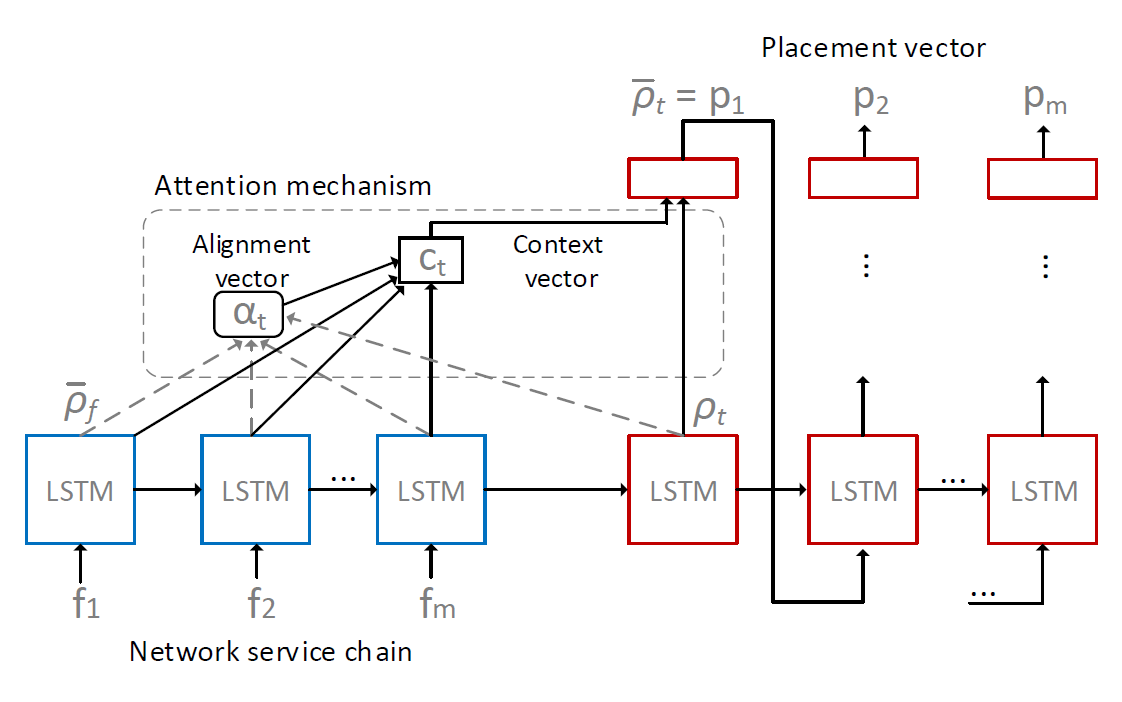Code of the paper: Virtual Network Function placement optimization with Deep Reinforcement Learning.
In this project, an attentional sequence-to-sequence model is used to predict real-time solutions on a highly constrained environment. For that purpose, additional reward signals are provided to estimate the parameters of the agent. The reward signal indicating the energy consumption of the infrastructure is complemented with additional feedback signals, indicating the degree of constraint dissatisfaction. These constraints are incorporated into the cost function using the Lagrange relaxation technique.
Pending to be published...
- Python 3.6
- Tensorflow 1.8.0
- Minizinc 2.1.1 (optional -> --enable_performance)
pip install -r requirements.txt
Learn your own model from scratch (model is saved in the default location save/model):
python main.py --learn_mode=True --save_model=True
Continue learning a previously saved model:
python main.py --learn_mode=True --save_model=True --load_model=True
Test pretained model performance:
python main.py --learn_mode=False --save_model=False --load_model=True (--enable_performance=True)
To visualize training variables on Tensorboard:
tensorboard --logdir=summary/repo
To activate Tensorflow debugger in Tensorboard, uncomment TensorBoard Debug Wrapper code. Execute Tensorboard after running the model.
tensorboard --logdir=summary/repo --debugger_port 6064
The models used in the paper are stored in save/model/, to test them agains Gecode solver run the script:
script_test
The output of script_test are the test.csv files, which contain the placement results from both, the solver and the neural network. These output files are also available in save/. To visualize the comparison between Gecode and the model model run:
python graphicate_test.py -f save/model_test.csv
To learn the models used in the paper from scratch run the script:
script_learning
The learning process is monitored in a learning_history.csv file, available in save/model/. To visualize the learning process run:
python graphicate_learning.py -f save/model/learning_history.csv
Test Minizinc instalation solving the model placement.mzn fed with a demo input data placement.dzn:
minizinc placement.mzn placement.dzn -a
Ruben Solozabal, PhD student at the University of the Basque Country (UPV/EHU) - Bilbao
Date: June 2019
Contact me: rubensolozabal@gmail.com
